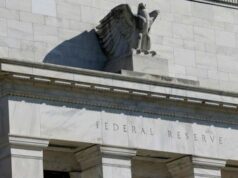Hot money turns around in February despite volatility
MORE foreign capital entered than left the country in February to yield a net inflow of $40 million in February, despite the brewing volatility over the spread of the coronavirus disease (COVID-19).
However, analysts warned that the coming months could be brutal, as the on-going Luzon lockdown and the stock market selloff are hurting investor sentiment.
Foreign portfolio investments — dubbed as “hot money” due to the ease by which these funds go in and out of an economy — resulted to a net inflow of $40.06 million in February, according to data released by the Bangko Sentral ng Pilipinas (BSP) on Friday.
This inflow is a reversal of the net outflow of $486.1 million logged in January, and is smaller compared to the $339.57 net inflow seen in February 2019.
BSP data showed $1.374 billion in registered investments in February, lower than the $1.41 billion in February 2019 but 11% higher than the $1.235 billion recorded in the preceding month.
The BSP said that majority or 68.7% of the foreign investments logged in the month were funnelled into Philippine Stock Exchange-listed securities, mainly for businesses such as holding firms, property companies, banks, transportation services firms, and food, beverage, and tobacco companies.
On the other hand, nearly a third (31.3%) went to peso government securities.
A big chunk or 72.8% of the foreign investments came from the United Kingdom, Singapore, the United States, Luxembourg, and Japan.
BSP data also showed gross outflows stood at $1.334 billion in February, which was higher than the $1.07 billion seen a year ago but smaller compared to the $1.721 billion logged in January.
The central bank said there was “on-going concern on the potential global impact of the COVID-19 outbreak, and the release of 2019 corporate earnings report of several firms” in February.
BSP projects foreign portfolio investments to hit a net inflow of $8.2 billion in 2020, according to its outlook last November.
Sought for comment, Rizal Commercial Banking Corp. Chief Economist Michael L. Ricafort said that the net inflow of hot money somehow “defied increased volatility” in the market as coronavirus concerns began emerging in February.
“This is manifested by the relative resilience of the peso exchange rate recently, among the strongest in two years, partly due to interest rate differentials in favor of the peso and sharp decline in global crude oil prices…” Mr. Ricafort said in an email.
Economists expect volatility in the global financial markets to drag on for several months, which would affect foreign portfolio investments.
For his part, ING-Bank NV Manila Senior Economist Nicholas Antonio T. Mapa said that the enhanced community quarantine in Luzon paired with the selloff in the local stock market will take its toll on investor sentiment.
“March will likely see an even more severe outflow with most of the Philippines on enhanced community quarantine and economic activity grinding to a halt,” Mr. Mapa said in an emailed response.
“The stock market has plunged, bond markets are selling off and world leaders are scrambling to right the floundering global economy,” he added.
UnionBank of the Philippines, Inc. Chief Economist Ruben Carlo O. Asuncion said foreign investors will gauge the government’s ability to contain the virus outbreak.
“It would be clear for potential investors if the current efforts are actually working (just like what has happened in other countries so far),” he said in an emailed response.
As of Thursday, there were 217 infected patients in the Philippines, with 17 deaths recorded. — Luz Wendy T. Noble



